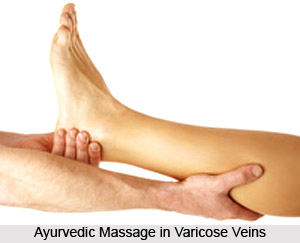 Varicose Vein is a condition in which veins becomes permanently enlarged, twisted and painful, mostly in the legs. This may be caused when the valves in the veins do not work properly or there is any kind of weakness in the wall of the veins. There are many other reasons for the varicose veins like pregnancy, obesity or overweight, big belly, constipation etc. The people, who have to stand for long time throughout the day, also have the possibility of developing varicose veins.
Varicose Vein is a condition in which veins becomes permanently enlarged, twisted and painful, mostly in the legs. This may be caused when the valves in the veins do not work properly or there is any kind of weakness in the wall of the veins. There are many other reasons for the varicose veins like pregnancy, obesity or overweight, big belly, constipation etc. The people, who have to stand for long time throughout the day, also have the possibility of developing varicose veins.
Varicose Vein demands a very subtle massage where the kneading type is not possible. The special oils like sesame oil, narayana oil, bala oil etc. The affected part is rubbed with great caution so that no pressure is exerted on the affected part. The massaging should start from foot to groin region and not backwards. Along with the external massage therapy certain drugs like shatavari, ashwagandha etc are also applied to cure varicose veins.
There are also certain other remedies like wearing of socks, keeping foot raised while sleeping that give relief in varicose veins. Certain elastics are also available in the market as bandages that can be tied at the affected parts. However each time a treatment is done physician`s advice is recommended.
This article is a stub. You can enrich by adding more information to it. Send your Write Up to content@indianetzone.com




















